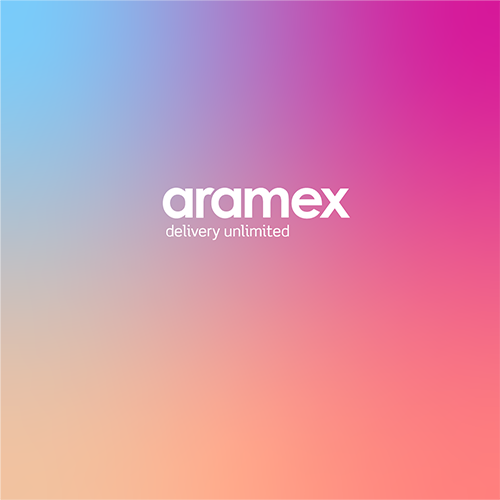Your Guide to Small Business Call Center Software
When deciding on communications technology, small businesses need to weigh costs, ease of use, and scalability; success depends on finding a good balance between all three. While small businesses may not require as robust a solution as companies with thousands of employees, a single phone line is often not enough either. Call center software creates flexible, scalable phone systems for business operations — at a price point that works for businesses of all sizes. Discover how call center software can be used to maintain, sustain, and grow small businesses.

What Is Call Center Software?
Call center software is a system that helps companies manage communications both internally and externally. Modern call center solutions encompass not only phones, but emails, text messaging, and even video conferencing. This is made possible through a virtual call center platform, typically powered by Voice over Internet Protocol (VoIP) technology.
Call center solutions are no longer one-size-fits-all for businesses, and for good reason; 21st-century commerce is a fast-paced digital market that requires adaptability. As a result, technology has made businesses more mobile — and their customers more accessible. These advances in technology also enable more customization, so when businesses need a call center system, they can pick what features they want and ignore the rest.
With that flexibility, though, come more options to sift through: on-premises and cloud-based solutions, or even a PBX call center, which can be particularly overwhelming for small businesses. To ease the decision-making process, let’s go over the essential features.
What Should You Consider in a Call Center Software?
Choosing the best call management software starts with identifying a business’s needs and then finding a solution that addresses them — nothing more, nothing less — at an affordable price point. This is especially important for small businesses, since an ill-fitted solution may end up costing them too much money, time, or resources — all things which small businesses need to spend wisely.
When selecting a call center solution, business owners should consider:
Usability | Above all, having a plug-and-play solution is important. Spending time learning a phone system, much less training others to use it, drains valuable time and money from operations — time that could be spent on other core functions. The easier a business can adopt the call software, the better off it will be in both the short and long term.
Simplicity | If a business’s communications system is a patchwork of features from multiple vendors, operations quickly become bogged down managing various relationships. Additionally, it becomes harder to troubleshoot when something goes wrong with the call center. Systems like VBC house all the core capabilities of small business communications — like call queues, call routing, and IVR — in one place.
Flexibility | Every business needs to remain agile, but small businesses even more so. Operating with a lower headcount and smaller budget means leadership and staff have to be able to make adjustments on the fly, particularly when the unexpected occurs. A digital solution like VBC offers on-the-go, out-of-office functionality, and the ability to quickly make changes to call flows.
Scalability | Periods of growth should be a time of celebration for businesses, but sometimes it can send small businesses into a state of disarray. When they’re suddenly flooded with a customer base their workflows aren’t equipped to handle, it can deteriorate the customer experience and overwhelm employees. Call center software eases the growing pains common to small businesses; in fact, with VBC, adjustment is as simple as a few clicks. In seconds, administrators can edit call queue rules, update IVR menus, and add longer buffers for agents to prepare in between calls. And if the business grows to the point of needing further connectivity between departments, VBC has the potential for call center CRM integration in the future.
Affordability | The best solution in the world means nothing to a business if the price point is too high. Thankfully, cloud-based solutions like VBC are not only cost-friendly, but cost-effective, enabling businesses to spend less and save more. In addition to costing less per-month, cloud-based phone systems are both cheaper and easier to maintain than physical systems. Switching to call center software does away with maintenance costs for analog equipment and often greatly reduces the time spent troubleshooting when something goes wrong. Solutions like VBC streamline communications workflows, helping their budget stretch further. It also boosts CX, which is likely to boost customer spending.
How Small Business Needs Differ From Larger Companies
Communications technology matters for any business, as does selecting the right phone systems. But for small businesses, this choice presents a unique challenge. Smaller businesses often have to remain agile and quickly scalable — all with lower headcounts and tighter budgets. As such, small business phone systems must be as flexible as the companies they power: simplicity, ease of use, and affordability are all crucial factors.
Thankfully, there are phone systems designed to address these very issues. The best call center software will provide the flexibility small businesses need at a price they can afford. What’s more, the software can have as many (or as few) features as needed, meaning small business owners don’t have to adopt software that’s loaded with complex and unnecessary features — features they won’t even use and that might incur additional costs.
If you’re a small business owner wondering, “How do I set up a simple call center that does what I need, and nothing more?” Vonage is here to help. Below you’ll find some information about call handling software, its most essential features, and how to pick the best call center software for your small business.
What Are Popular Call Center Software Features?
Not every business needs their call center to have a full suite of features. In fact, most businesses can thrive with just a few vital functions — whether their headcount is in the dozens or hundreds. Here are some key features your call center system shouldn’t miss out on, and why you need them to operate:
Call Queues
When a business is constantly fielding calls, it’s important to maintain a big-picture view. Call queues give both administrators and those answering the phones visibility on key details, such as who is waiting on hold, who is available to answer, and the priority order for both. Admins are able to program in what order calls get answered and which agents will get priority on those calls. Additionally, agents can mark themselves as available or unavailable, so calls are not directed to an unattended line. And even if an agent is mistakenly listed as “available,” the queue system can reroute calls to the next best choice so the call isn’t dropped.
Call Monitoring & Call Recording
If needed, there are a variety of features that can augment call queues with even more utility. For example, administrators can listen in on calls through call monitoring, or they can record conversations for future reference — something that agents who make the calls will also be able to access. Recording can be automated based on predetermined rules, so only the necessary information is kept, and the rest is scrapped.
Call Routing
Directing customer calls properly — and efficiently — will always be essential to customer service. Customers should ideally reach their answers as quickly as possible, with as few transfers as possible. Call routing capabilities offered by providers like Vonage Business Communications (VBC) focus on helping call centers connect customers to the correct person, which is critical for maintaining a positive brand image.
Interactive Voice Response (IVR)
Automation brings a whole new level of flexibility to business communications. IVR is a prime example, allowing business owners to use as much (or as little) automation needed for positive customer experiences. IVR is the use of pre-recorded voice lines to direct a customer’s call when they contact your business; it typically involves a starting menu, which then splits into increasingly specific options depending on the nature of your customer’s call. These menus can be programmed to respond to keypad inputs, or voice inputs from the customer. The benefits of IVR are threefold for small businesses: It routes customer calls quicker, can declutter operations, and uses workflows that adjust based on predetermined rules set up by the admin.
VBC Mobile App
For businesses with remote employees or work that involves a lot of time in the field, staying connected is crucial. It’s also easy with a mobile app version of your phone systems, which VBC offers. With this feature, “out-of-office” doesn’t also have to mean “unavailable” — take calls, respond to emails, and send messages in any location with an internet connection.
Never Miss a Call
As much as a business wants to be able to answer every call that comes their way, sometimes that’s simply not possible. Thankfully, this doesn’t have to hurt the customer experience — especially with VBC’s Never Miss a Call. This suite of features includes various capabilities to make sure every call gets attended to, from basic Call Forwarding to Follow Me, which sets a sequence of lines to automatically dial if the first line goes unanswered. There’s even Do Not Disturb, which automatically reroutes calls to voicemail, whether that’s for one user or across all channels. Every feature in Never Miss a Call can be quickly toggled on and off in the Admin Portal, so businesses can configure the best setup for their operations.
Admin & User Portals
Simplicity doesn’t have to mean sacrificing personalization. With VBC’s Admin Portal and User Portal, everyone can manage extensions in the way that works best for their individual roles. Employees and admins can adjust extension settings, and admins also have the ability to add or remove features. And because VBC is a cloud-based solution, adjusting these features is simple — and can be done from any internet-enabled device.
Virtual Assistant
Vonage’s AI Virtual Assistant uses conversational AI for voice-enabled customer self-service, adds intelligence to any conversation, and makes CX your competitive advantage. This feature can ensure that high volumes of inbound calls are addressed during peak business hours or busy seasonal periods;m eliminate long hold times for a live person when customers need quick answers or actions in real time; and improve customer engagement by capturing insights that result from the verbal cues initiated by AI Virtual Assistant itself.
All of these features — and many more — are core capabilities of Vonage Business Communications (VBC) and can be scaled to fit any small business’s needs. Even if a small business someday grows into a bigger operation, their call center software can grow right alongside them. VBC fully integrates into Vonage Contact Center (VCC), a solution that incorporates a whole other suite of advanced capabilities. With VBC, businesses have the functions they need now and the scalability they might need later.
How Much Does a Virtual Call Center Software Cost for a Small Business?
The best call center software solutions will offer a price point that adjusts with your business size, needs, and desired features.
As you weigh and compare call center solutions, you’ll find a wide variety of prices, depending on several factors, such as the number of users, the number or type of features included in the plan, and more. In general, providers charge a flat fee of anywhere from $18.99 to $229+ per month per user, with most options falling somewhere in the $75 to $150 range. You’ll also find a few per-hour or per-minute offerings.
Your goal should be to find a solution that’s easy to implement and use, has the features you need, and that will deliver a superior experience for both your employees and your customers.
Vonage Business Communications (VBC) meets these needs with three different tiers of plans, each of which has a price that varies with your employee headcount:
Mobile | Best for remote and on-the-go call centers, this plan connects your phone services to both desktop and mobile devices. The Mobile plan includes unlimited calls/SMS messaging, unlimited team messaging, and over 20 third-party integrations. This plan starts at $19.99 per month per line, with volume discounts applied for different levels of additional seats.
Premium | Our most popular option, this tier includes everything in Mobile, plus the ability to incorporate IP deskphones. Premium also includes features like CRM integration and a multi-level auto attendant. If you’re a small business that needs both remote capabilities and a working on-site solution, this tier is your best choice. This plan starts at $29.99 per month per line, with a similar volume discount structure.
Advanced | The most comprehensive solution, our highest tier includes everything offered in the two lower tiers alongside state-of-the-art features like visual voicemail, call groups, and up to 15 hours of on-demand call recording. Businesses who are heavily dependent on their call center and require a lot of nuanced capabilities will see the most benefit from this option. If you're wondering how to record a phone call, this plan provides an easy solution with its on-demand recording feature. This plan starts at $39.99 per month per line, with a similar volume discount structure.
No matter what tier is right for you, each of our plans includes internet-based phone service through a high-speed connection, with over 50 standard phone features, 24/7 U.S.-based tech support, and over 99% uptime reliability. You’re often even able to keep your existing number.
If you would like to learn more about how much call center software would cost for your business, feel free to visit our Plans and Pricing page or contact us directly with any questions.
How Do I Choose a Good Call Center Software?
If you’re a small business owner, you need a call center solution that’s efficient, easy to use, and has the capabilities required to run your business well. As you search for the best option, make sure to ask these questions:
What functions do I need as part of my call center, and which ones are the highest priority?
Will this system make my operations run more smoothly?
Can I (and my staff) learn this phone system quickly and easily?
Does everything I need to run this system come from a single provider?
Is the price something I can afford, and will I save money in the long run?
If my business grows, can this system scale accordingly?
Vonage is the answer businesses need to all these questions, and more. As a business communications provider, we pride ourselves on delivering call center and other solutions that are adaptable, simple, and made to hit the ground running. This way, business owners have reliable customer service without spending extra time worrying about the details; instead, that time can be spent growing the business. And as a leading UCaaS and CCaaS provider, Vonage creates communications solutions that can grow with your revenue.
Developing a great call center doesn’t have to be a headache for small business owners. It’s easy to keep your business connected with Vonage running your phone systems.
Contact Us
Let's connect!
Want to know more about how to balance costs, ease of use, and scalability in your business communications? We’re here to help! Call us at 1-844-365-9460, or fill out this form! A dedicated specialist will show you:
- How call center software can help you create a flexible, scalable phone system for business operations — at a price point that works for you
- The importance of having a system that's simple to set up and use and that can easily scale as you grow
- Key features that you should consider, like call queues, call recording, interactive voice response (IVR), and more
Thanks for reaching out!
We'll get back to you as soon as we can. In the meantime, feel free to explore more about Vonage and how we're making communications more flexible, intelligent, and personal so our customers can stay ahead.


